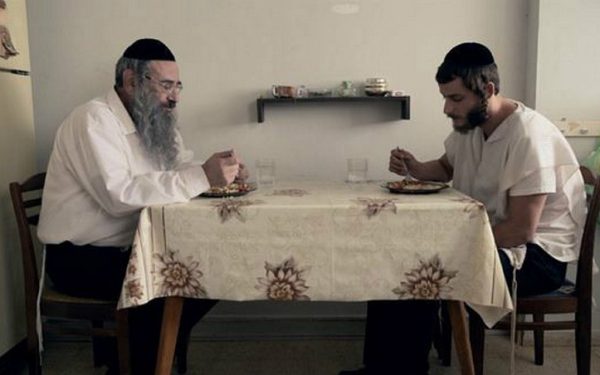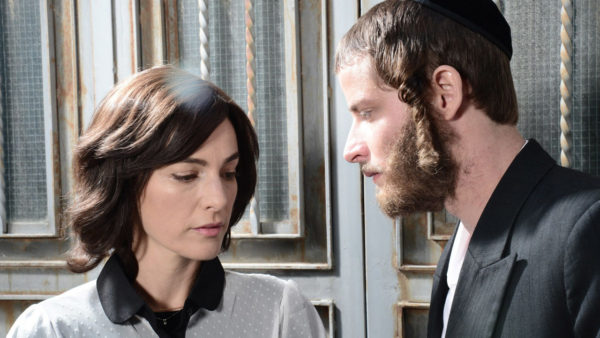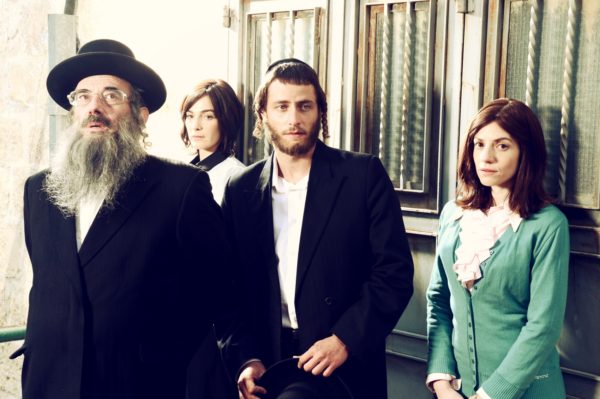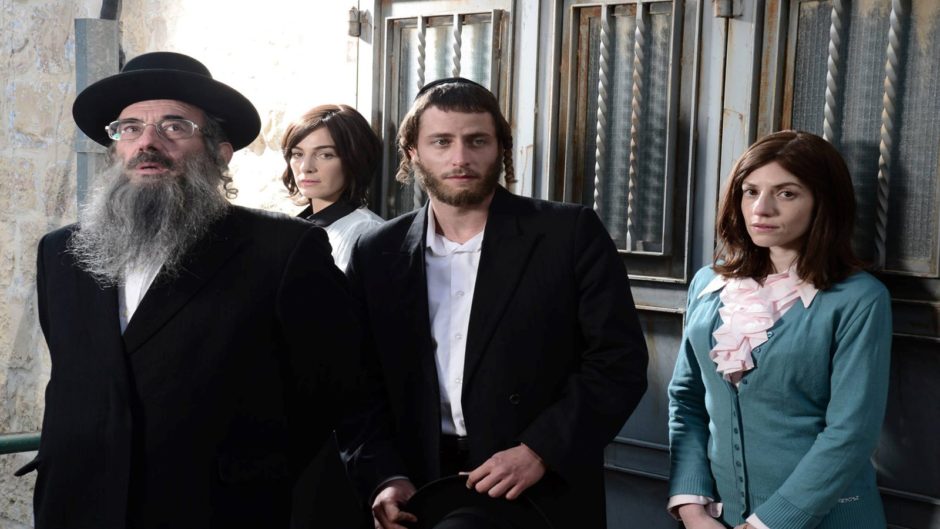Ultra- Orthodox Jews in Israel, known as haredim in Hebrew, live in almost total seclusion, their everyday lives an enduring mystery to most Israelis. Shtisel, a popular Israeli television series which ran from 2013 to 2014, shines a spotlight on these reclusive Jews through the Shtisels, a middle-class family in western Jerusalem.
Rather than regarding the Shtisels as exotic creatures in a zoo, Shtisel, now available on the Netflix streaming service, treats them like ordinary people and thereby humanizes them, judging by the 12 episodes of the first season. These haredim are approachable characters because their problems, desires, dashed expectations, strengths and weaknesses are so utterly normal.
They’re different than secular Jews in terms of their deep attachment to religious and social traditions, but their emotions are similar. Which is why this series is so appealing and addictive. You can, to some extent, identify with them, even if your lifestyle clashes completely with theirs.

The patriarch of the clan, Shulem Shtisel (Dov Glickman), is a reserved rabbi who teaches at a Jewish day school. He shares a modest apartment with his bachelor son, Akiva (Michael Aloni), who seeks a marriageable woman from his own milieu. Since the recent death of his beloved wife, Dvora, Shulem summons up visions of her in dreams and hallucinations.
Akiva’s married brother, Zvi Arieh (Sarel Piterman), studies Torah at a nearby yeshiva, but his secret ambition is to become a singer. Their older sister, Giti (Neta Riskin), has her hands full with four children and a seemingly errant husband. All the Shtisels dote on their gentle and loving grandmother, Malka (Hanna Reiber), a resident of a seniors’ home.
In real life, the actors hail from secular backgrounds. I mention this otherwise irrelevant detail because they succeed in burrowing themselves into the skins and souls of their respective characters. By any measure, this is an outstanding five-star cast.
Their stories are compelling.
Shulem, who peppers his idiomatic Hebrew with Yiddish, Yiddishisms and words from prayers, is a gruff, conscientious, no-nonsense figure who looms large at his Talmud Torah and in his family circle. His associates, children, grandchildren and students look up to him. He commands respect. But he interferes in his children’s lives, no longer speaks to one of his estranged daughters, and deludes himself into thinking he can persuade a much younger woman to marry him simply by being himself and buying a new suit and fancy hat.
Shulem and his fellow haredim do not interact with secular Jews, much less Sephardic Jews, whom he condescendingly refers to as “Franks.” Of course, he has no dealings with Palestinian Arabs, even though he exemplifies the anti-Zionist ethos of haredim. In line with his insular views, he forbids his students to watch an Israeli Air Force show on Independence Day.

Akiva, a supply teacher at his father’s school, has his heart set on being a painter. A bohemian in haredi garb, he’s got talent to spare, but Shulem doesn’t think much of artists. Fully ready for a romantic relationship, he’s seriously interested in Elisheva (Ayelet Zurer), a demure widow whose son is one of his students. Elusive and mysterious, she continually fobs him off, saying she’s too old for him. Nonetheless, he continues to pursue her. In the meantime, Akiva starts working for the unscrupulous owner of an art gallery who masquerades as a painter by signing his name on his employees’ commissioned paintings.
Given Shulem’s opposition to Akiva’s courtship of Elisheva, he finds a matchmaker, who arranges a meeting between Akiva and Esti (Moon Shavit), a perfectly nice young woman who’s ready and eager for marriage and procreation.
Giti, a devoted mother, starts looking for a job after her husband, Lippe Weiss (Zohar Strauss), leaves the country for a position in Argentina and then, inexplicably, ceases all contact with her. This enrages their soulful teenaged daughter, Ruchami (Shira Haas), who turns against him. When Giti finds employment, she leaves Ruchami in charge of babysitting her younger siblings. Lippe, finally, resumes contact with Giti, promising to return to Israel.
Zvi Aryeh, his desire to become a singer notwithstanding, is a hardcore traditionalist. Having concluded that Malka is being corrupted by the racy television programs she’s avidly watching, he disconnects her “box” from the cable outlet, upsetting her. Later, Malka persuades Shulem to organize a “surprise” party for her 80th birthday.

The joys and travails of this profoundly conservative family — their love and appreciation of tradition, their successes and setbacks, their agreements and disagreements, their sorrows and disappointments — captivate a viewer.
Call Shtisel, if you will, an empathetic and satisfying haredi soap opera made for the masses.
